Happy Birthday song: Who can use it and why it's in court
- Published
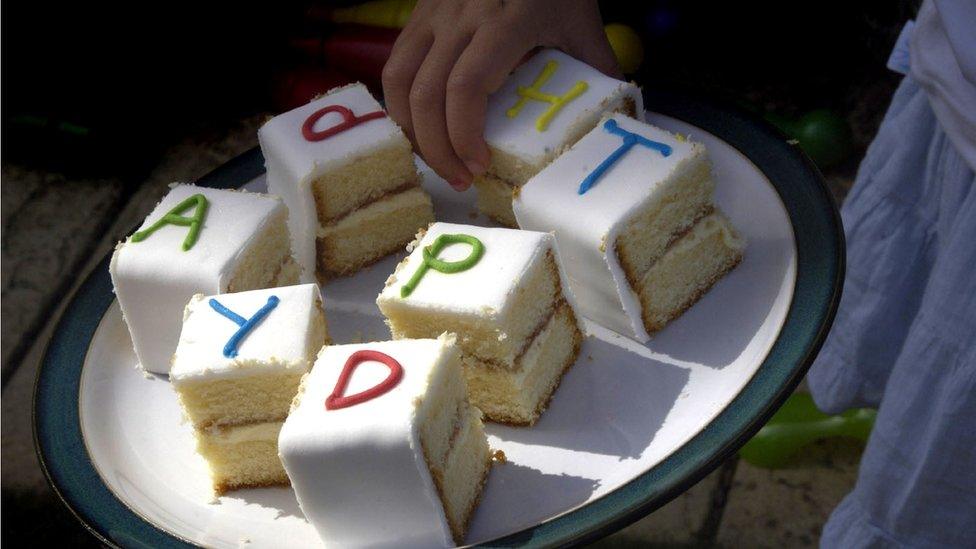
Everyone has one. A birthday, that is.
And we all know how that traditional song goes... Happy Birthday To You, etc.
But just in case you didn't know, there is a court case over that traditional song.
There's an argument over whether the song is under copyright and people should pay to play it on TV, radio and film or whether it is free because it belongs to the public.

Roger Federer tucks into his birthday cake after a match in Toronto, Canada, last year
The legal action was brought about by a documentary maker, two years ago, who was making a film about the song.
Jennifer Nelson was charged $1,500 (£962) to use the track in the project by the copyright holders, publisher Warner Chappell.
She now wants her money back.
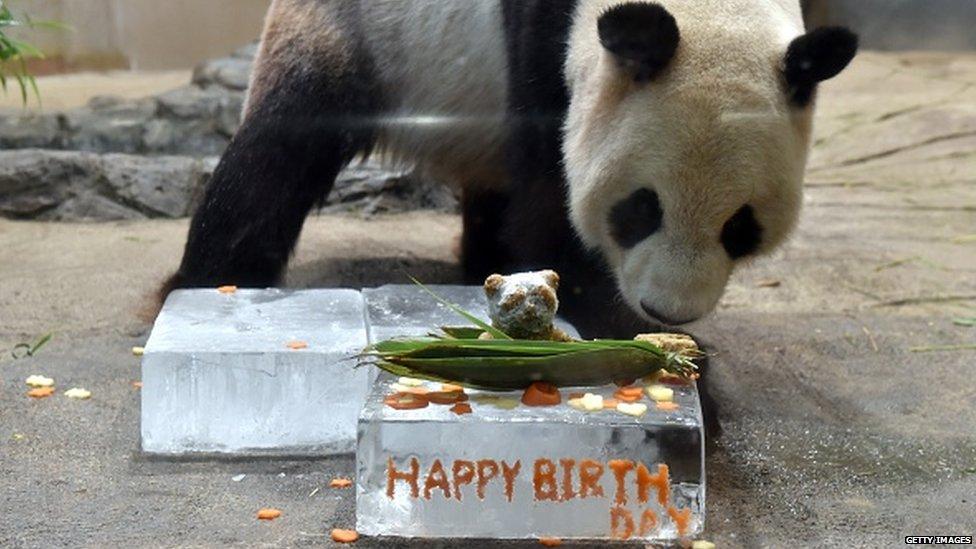
Ri Ri, a male giant panda eats a birthday cake in his enclosure at the Ueno zoo in Tokyo
A judge is supposed to decide whether the song is under copyright but Jennifer's lawyers say they've found a children's songbook from 1927 which has Happy Birthday, external in it and they say there's no copyright notice on that version.
That's eight years before the date Warner Chappell say their copyright starts from.
Jennifer's legal team argues that The Everyday Song Book from 1927, its 15th edition, came from Warner Chappell's digital library.
The songbook was in documents handed over by the publisher this month, which were "mistakenly" not produced during the discovery period in the case - that ended more than year ago.
So, in a conclusion of sorts, if the lawyers for Jennifer and co are right, it could mean you'll start to hear Happy Birthday sung on TV, radio and film without fear of a big bill.
Happy Birthday is 120 years old
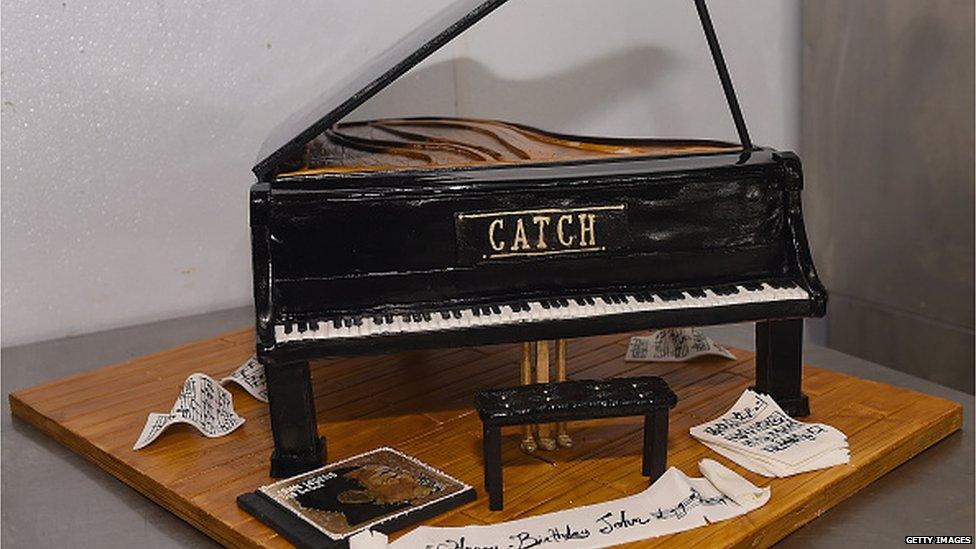
Birthday cake for John Legend
...or so it is thought to be.
This is the confusing bit. Often dubbed the world's most popular song, it's thought it was written by sisters Patty Smith Hill and Mildred Hill in 1893.
Their song was called Good Morning To All, and over time, the lyrics changed to the "Happy Birthday To You" song we all know today.
Lyrics for it appeared in a 1922 songbook and the piano parts were published in 1935.
That's when time Warner Chappell says is the start of its 95 years of protection under copyright law.
But that's not the end, because the song's copyright was held by Birch Tree Group Limited. Warner Chappell bought them in 1988.
Raking in the royalties
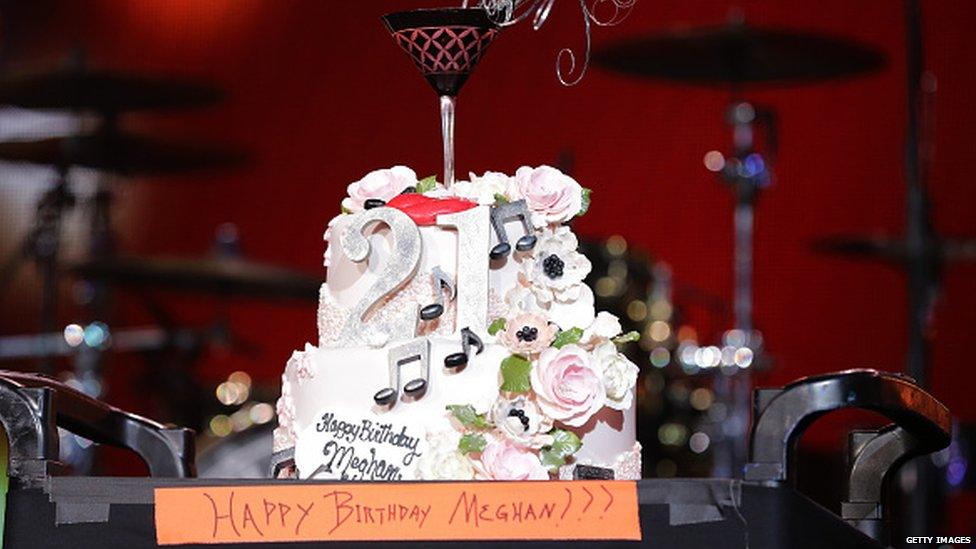
This is the cake Meghan Trainor had to celebrate her 21st birthday
There's a good reason why you don't often hear the song being sung or played on TV or in films.
It's because it can cost anywhere between $500 (£320) and $3,000 (£1900) to play the track.
Sometimes, it can be even higher. Warner Chappell earns an estimated $2m (£1.3m) a year from the royalties it collects.
Singing it costs too
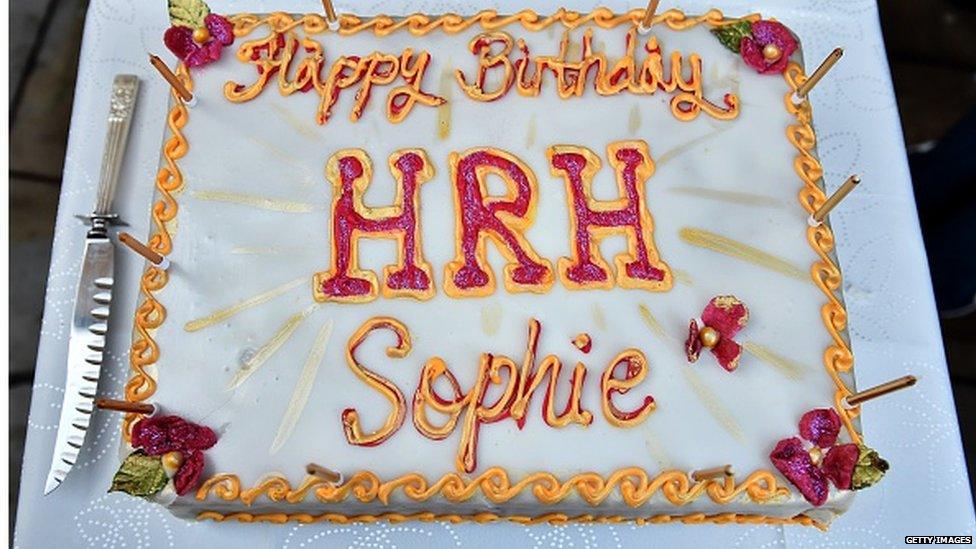
The birthday cake for HRH Sophie Wessex
Even if a presenter sings the song live on air in a radio or TV studio, it is logged and reported to the relevant bodies in the same way as if Taylor Swift performed a live track, say in the Radio 1 Live Lounge.
The end of copyright
The next oral hearing in the Happy Birthday case is scheduled for Wednesday.
Warner Chappell says the song remains under its copyright until 2030 in the US, unless a court decides it belongs in the public domain.
It's in the public domain in the EU from 2016.
Follow @BBCNewsbeat, external on Twitter, BBCNewsbeat, external on Instagram, Radio1Newsbeat, external on YouTube and you can now follow BBC_Newsbeat on Snapchat